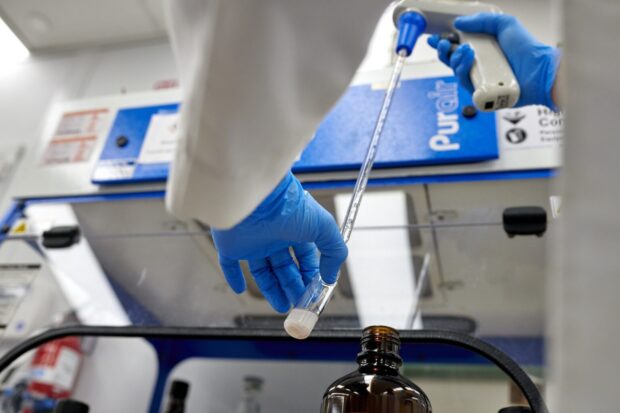The U.S. Department of Defense entered an agreement with Valisure, an independent lab that’s spotted dangerous chemicals in a variety of widely used pharma and consumer products, to test medications amid surging concerns about generic drug quality and shortages.
Under a multi-year agreement, Valisure will test dozens of drugs for dangerous chemicals and rate manufacturers’ quality to help the department weed out potentially substandard treatments, according to a statement from the Connecticut-based laboratory. The partnership is a cooperative research and development agreement to exchange information, and the Pentagon will not pay Valisure.
Nine out of 10 drugs consumed by Americans are generic, low-cost copies of innovative medications whose patents have expired. Concerns about the generics industry — largely based in India and China — have exploded as the U.S. encounters shortages affecting drugs such as life-saving cancer therapies made at a plant in India found to have major quality shortfalls.
After COVID-19 revealed the U.S.’s dependence on other nations to provide crucial treatments, Congress directed the Defense Department to assess risks to its pharmaceutical supply chain. Bloomberg first reported on the department’s talks with Valisure in June. Drug shortages are at a nine-year high as manufacturers deal with quality issues, difficulty getting supplies and rising demand for certain drugs.
“Beyond the importance this holds for national security, the Department of Defense is also a large health system with millions of patients,” Valisure Chief Executive Officer David Light said in the statement. “This DoD initiative can be a powerful model for improving the generic drug market.”
The Defense Department didn’t respond to a request for comment.
Shortage Concerns
Valisure has gained attention for finding cancer-causing chemicals in drugs and personal-care products such as sunscreen, hand sanitizer and dry shampoo. The heartburn pill Zantac was taken off the market after the lab found a carcinogen in pills in 2019.
Kaiser Permanente, a California-based health system serving 12.7 million Americans, started working with Valisure on additional drug quality checks more than two years ago. However, U.S. regulators at the Food and Drug Administration have pushed back against such independent drug testing, saying that some labs aren’t trustworthy and may spark unwarranted shortages.
“Protecting patients is the highest priority of the FDA, and Americans can be confident in the quality of the products the FDA approves,” said Jeremy Kahn, a spokesman for the agency. “The FDA continues to work to build a safe, secure and agile drug supply chain so that American patients have the medications they need — medications that have been carefully reviewed by the FDA for safety, effectiveness and quality.”
The FDA has said that 62 percent of drug shortages are caused by quality issues stemming from poor manufacturing practices. A current shortage of two drugs, carboplatin and cisplatin, that are used to fight a variety of cancers is linked to a production plant in India operated by Intas Pharmaceuticals Ltd. The company’s plant shut down manufacturing after FDA inspectors found a truckload of shredded documents related to drug quality during a visit late last year.
“Our country’s reliance on active pharmaceutical ingredients and medicines manufactured abroad in China and India has come at significant cost of safety,” U.S. Representative Rosa DeLauro, a Connecticut Democrat, said in the statement from Valisure.
Valisure’s ratings will rely on a scoring system Light helped develop along with other drug safety and shortages experts that was published in March in the Journal of the American Pharmacists Association. The system takes into account the outcomes of FDA inspections and testing of drugs for correct dosage as well as any carcinogens or other toxic compounds.
Photo: A researcher works at Valisure’s lab in New Haven, Conn. Photographer: Gabby Jones/Bloomberg





















 Nearly 26.2M Workers Are Expected to Miss Work on Super Bowl Monday
Nearly 26.2M Workers Are Expected to Miss Work on Super Bowl Monday  RLI Inks 30th Straight Full-Year Underwriting Profit
RLI Inks 30th Straight Full-Year Underwriting Profit  Preparing for an AI Native Future
Preparing for an AI Native Future  Insurance Groundhogs Warming Up to Market Changes
Insurance Groundhogs Warming Up to Market Changes 